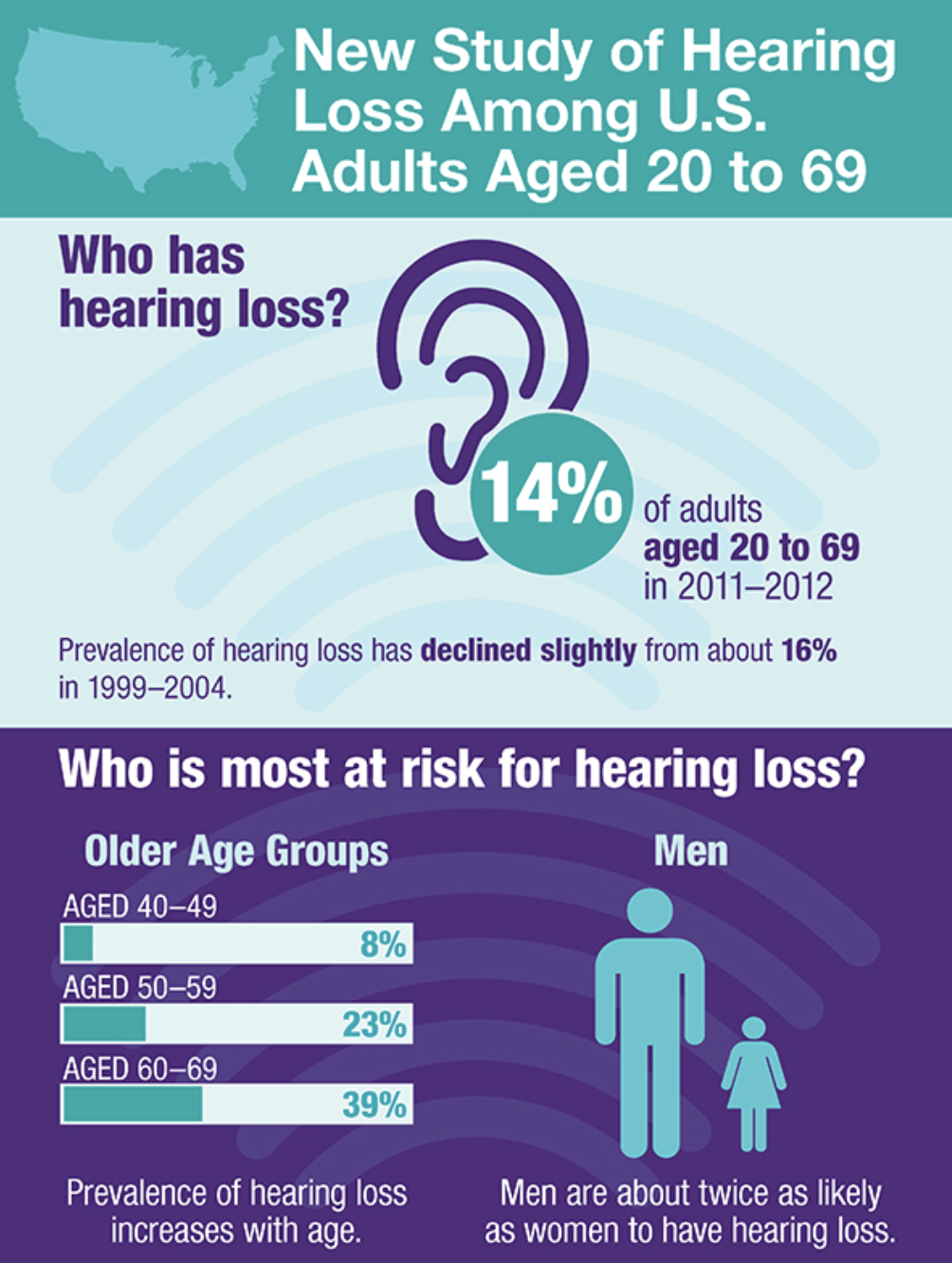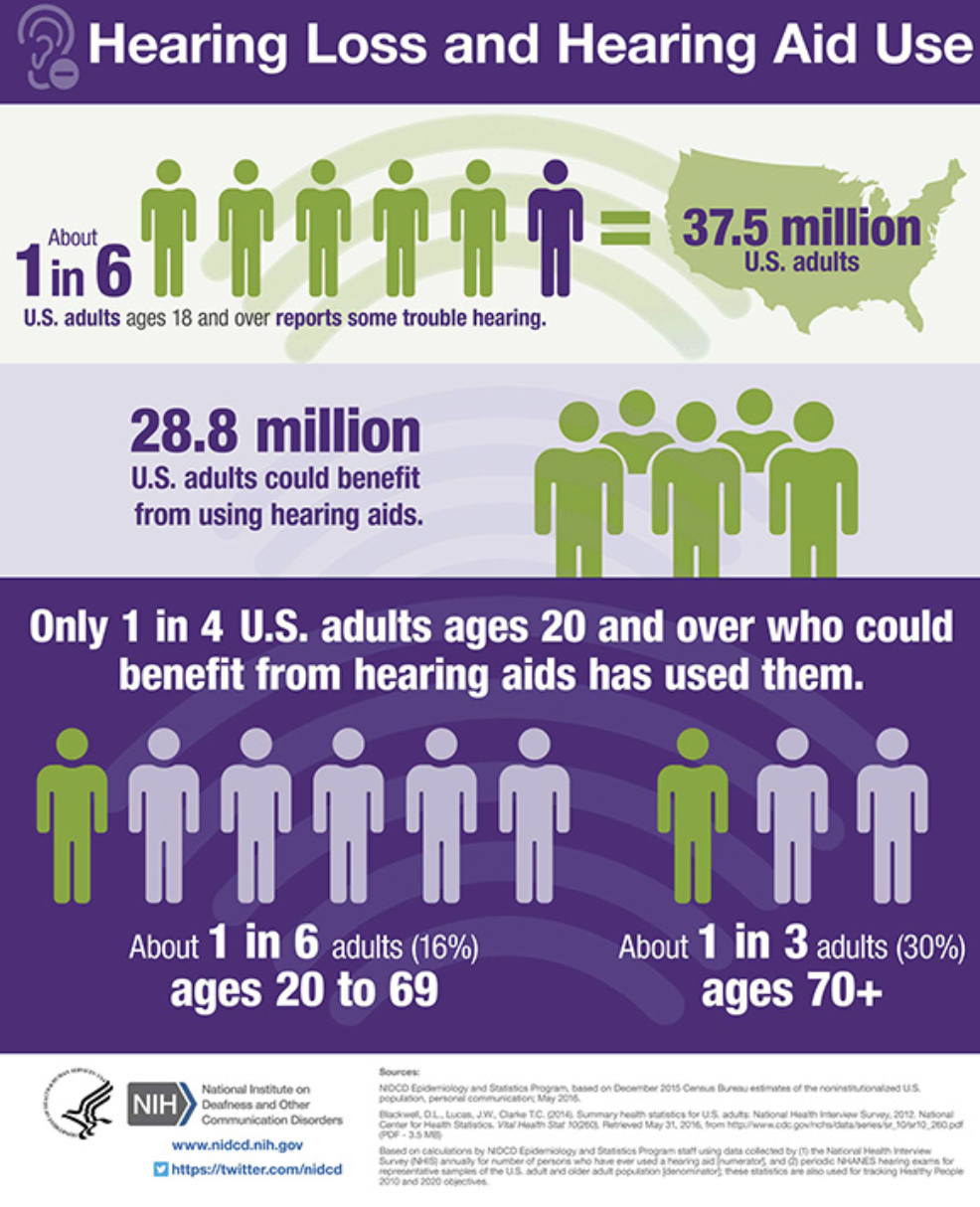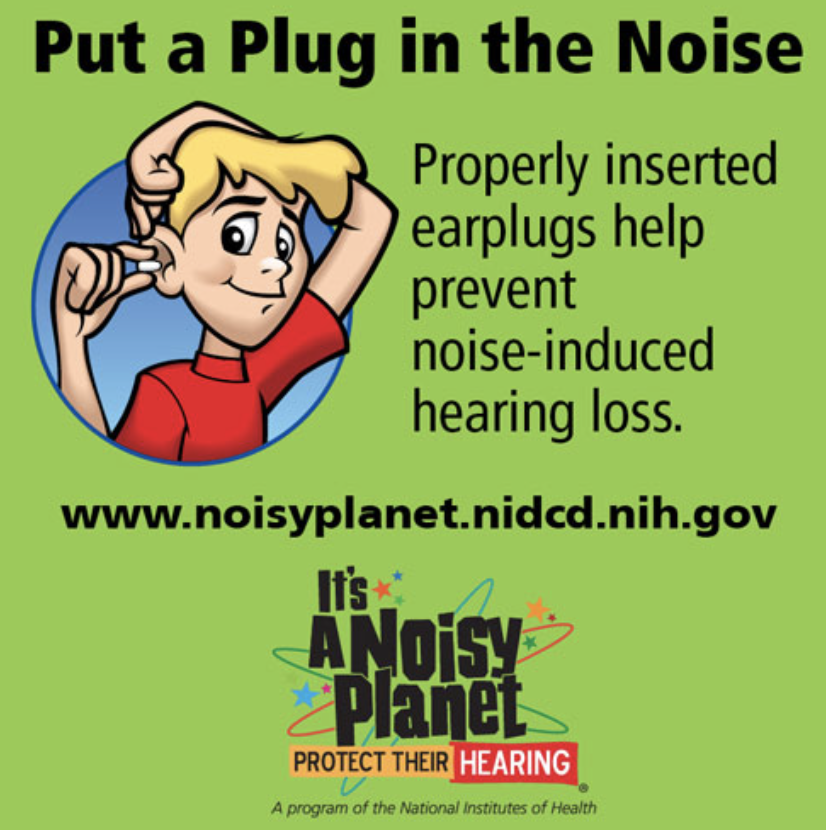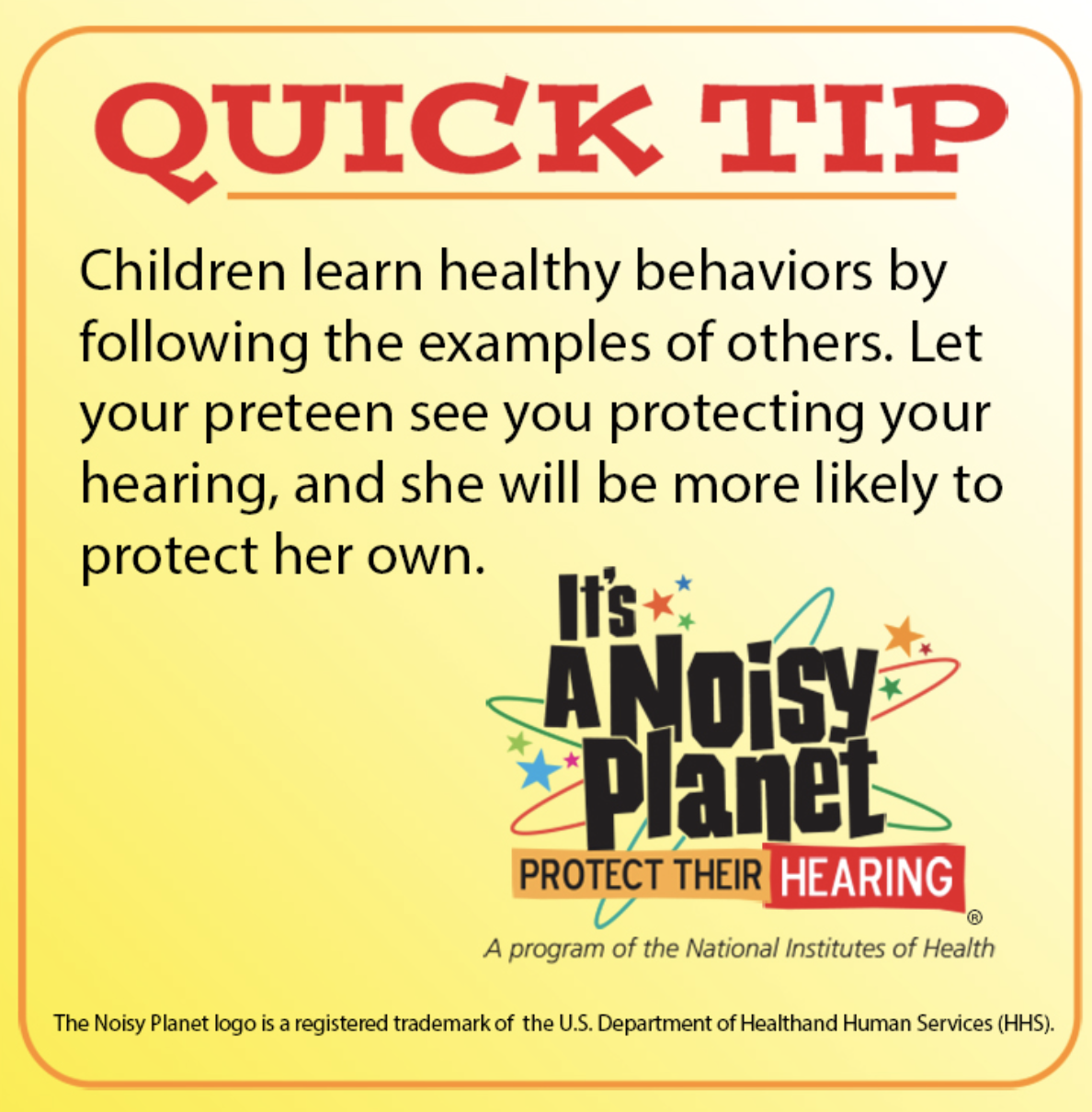Question: What are some facts about Hearing Loss?
- One in Six Adults Have Some Trouble Hearing
- About 28 Million Adults could benefit from Hearing Aids
- 50% of Young People Listen to Music/Audio Too Loudly
- No Warning Signs for Hearing Loss
- Once Hearing is Gone, You Can't Get It Back
Question: What can you do to prevent Hearing Loss?
- Lower the Volume
- Move away from the Noice
- Wear Hearing Protectors
- Get Audiology Hearing Test
- Consider Hearing Aids
With Mother's Day coming up, when was the last time you checked in on mom's hearing? Did you know that at least 20 percent of US adults, at some point of their life, has a significant problem with hearing, balance, speech or language. Communication disorders can compromise physical and emotional health and affect many aspects of life.
The National Institutes of Health (NIH) observes the month of May as National Better Hearing and Speech Month. In the USA, one is six adults reports having some trouble hearing, which equals approximately 46 million adults. And, this number has doubled in the past 30 years, as younger people experience hearing loss due to prolonged noise exposure. In addition, about 28.8 million adults have hearing loss severe enough that they could benefit from hearing aids.
I see a lot of children and adolescents in my office as well, and I get a lot of questions from parents about hearing health. Here are some interesting facts about hearing and young people from the NIH Listen Up awareness campaign. Five in ten young people listen to their music or audio too loudly. Four in ten young people are around dangerously loud noises during events like concerts like concerts and sports events.
What can you do to prevent Hearing Loss? First of all, don't wait until it's too late. Start protecting your hearing now, because once you have hearing loss, you cannot get it back. Especially for young people, lower the volume in your earbuds and headphones. Also, move away from the noice, especially at concerts and sporting events. In addition, wear hearing protection like earplugs or earmuffs.
For adults, I recommend visiting your local audiologist, like our friends at the Centers For Hearing Care, to have a formal consultation and hearing test. Finally, if you need hearing aids, I'd consider at least trying them out to see if you would benefit. And, also interesting is that some chronic medical problems, and some medications can affect hearing as well. So, a good time to check in with your Family Physician as well to explore possible medical problems associated with hearing.






